How to Perform Keyword Research with Google, Semrush and your Competitor's Website - Free Template Included!

Founder, Mura Digital
Updated: January 16, 2024
Published: January 10, 2024
Conducting thorough Keyword Research is like to fueling your car before a long road trip. It’s the crucial first step in building your SEO (Search Engine Optimization) strategy that determines the direction, effectiveness, and success of your online presence.
There are so many tools and methods to conduct keyword research, but three stand out for their efficiency and reliability: Semrush, Google, and your competitor’s website. Yup! We’re copying the smart kid’s homework!
Let’s explore how you can leverage these resources to enhance your SEO strategy – and once you’re ready to get started, download our free template below to keep your keyword research organized.
Download The Free Excel Template Here
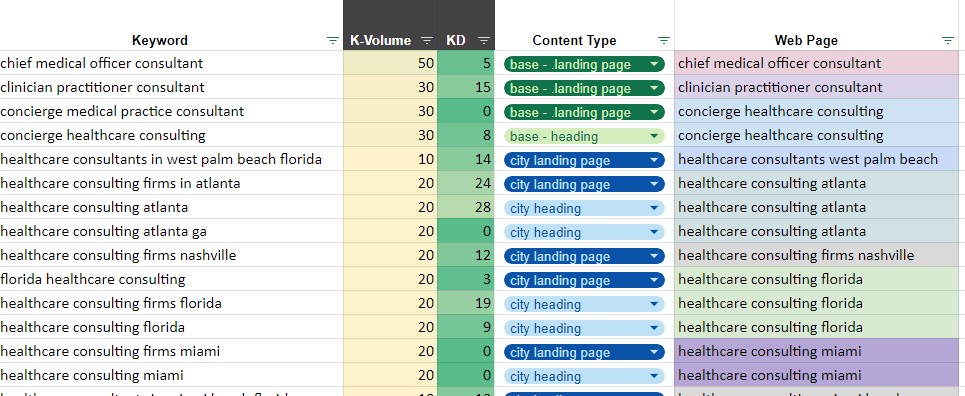
Our Keyword Research Guide
1. Starting with Semrush: The Industry Standard
Semrush is a powerful digital marketing tool that provides extensive data on keywords, including their search volume, difficulty, and the trends surrounding them.
Pro Tip: Semrush typically offers a free 7-day trial. This gives you the opportunity to use the same tool we use in-house, for free!
Keyword Overview
Begin by entering a broad keyword related to your niche into Semrush’s search bar. This will give you an overview, including variations of the keyword, questions people are asking, and related keywords.

Keyword Magic Tool
Use this feature to delve deeper. It helps you discover long-tail keywords, which are more specific and less competitive, making them ideal for a focused SEO strategy.

Competitor Analysis Tool
Semrush’s competitive research tools allow you to peek into the keywords your competitors are ranking for. This insight can help you identify gaps in your strategy and potential areas for improvement.
You can find the ‘Competitors’ tab under Domain Overview, within Semrush.
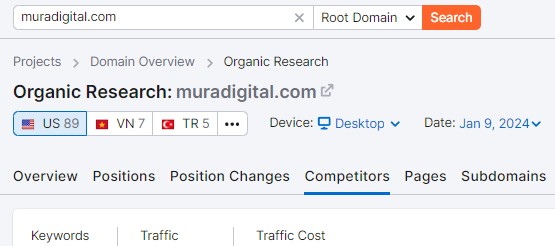
2. Leveraging Google: The Internet's #1 Source of Organic Searches
Don’t underestimate the power of Google itself in keyword research. It’s a straightforward, cost-free method to gain insights into what your audience is searching for.
Google Autocomplete
Start typing a keyword in the search bar and notice the suggestions that appear. These are popular searches related to your query.

"People Also Ask"
This section in Google search results shows the common questions related to your keyword. It’s a goldmine for understanding user intent and finding question-based keywords.
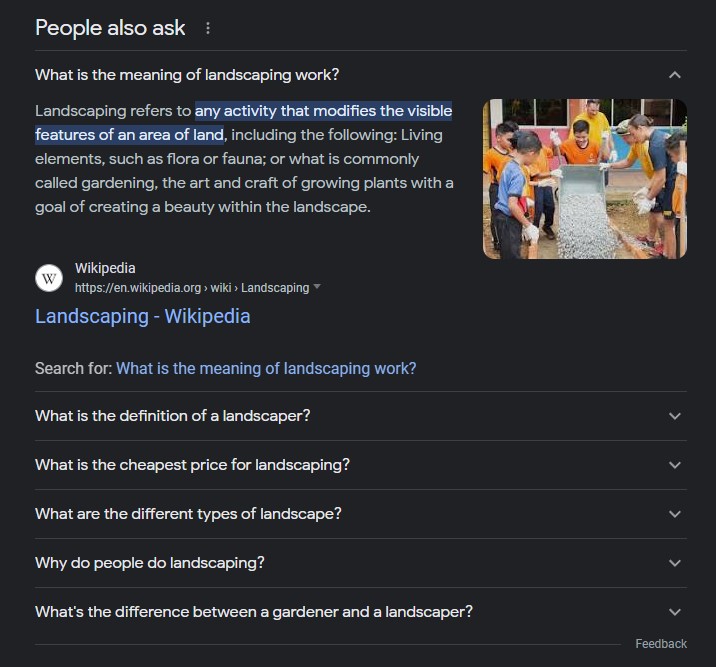
Google Trends
Use the Google Trends Tool to see the popularity of certain keywords over time and in different regions, helping you to target your content more effectively.
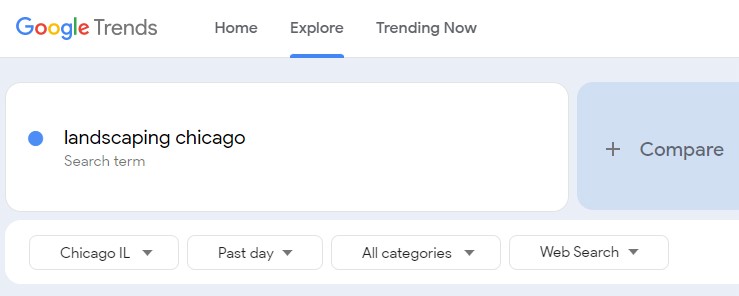
3. Analyzing Your Competitor’s Website: Learning from the Market Leaders
Your competitors can unwittingly become your tutors in keyword strategy. By analyzing their websites, you can uncover valuable insights.
Don’t feel bad… they do it too!
Start by Googling your keywords and dissecting the top results, like this one for ‘landscaping Chicago’.

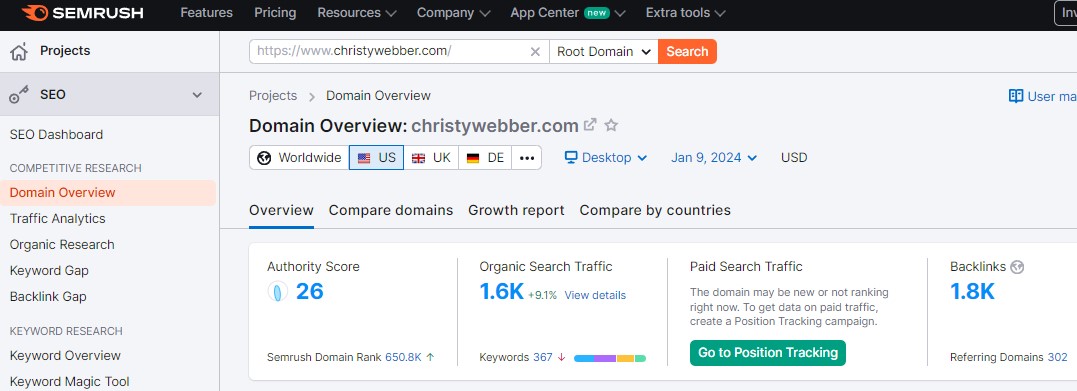
Identify Their Top-Performing Content
Look at your competitor’s blogs or articles that are performing well. Tools like Semrush can help you find out which keywords they’re ranking for.
Backlink Analysis
Understanding where their backlinks are coming from can give you ideas about the keywords they’re targeting.
Meta Tags and Descriptions
Pay attention to their choice of words in meta tags and descriptions. These often contain primary and secondary keywords.
More Practical Tips for Effective Keyword Research
Using these tools can be overwhelming when completing your keyword research. Here are some tips we have for those that are looking to get an edge in their SEO keyword research.
Below is a screenshot of the Keyword Magic Tool in Semrush.
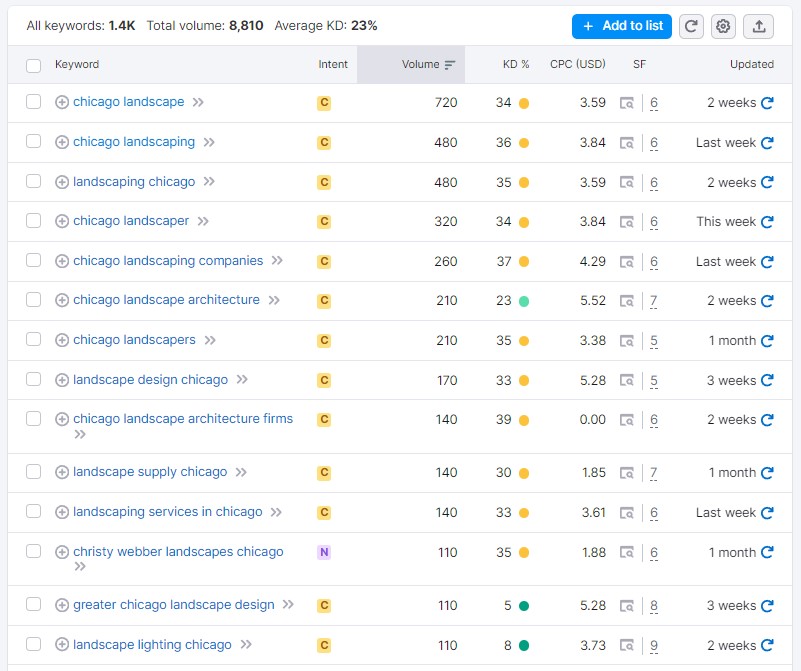
Balance Between High-Volume and Niche Keywords
While high-volume keywords can bring more traffic, they are often highly competitive. Balancing these with niche, specific keywords can yield better results.
Understanding Search Intent
Align your keywords with the intent behind the searches. Are users looking for information, trying to make a purchase, or comparing products? In the image above, “C” intent means Commercial Intent, which are more likely to result in higher conversion rates.
Keep an Eye on Keyword Difficulty
Some keywords might be so competitive that it’s nearly impossible for a new website to rank for them. Use Semrush to gauge keyword difficulty. In the image above, KD stands for Keyword Difficulty.
Regularly Update Your Keyword List
For the most part, SEO is not a set-it-and-forget-it kind of deal. Regularly update your keyword strategy based on current trends and analytics data. We recommend refreshing your keyword lists every 3 to 6 months, at minimum.
Conclusion: Research, Strategize, Take Action, Repeat.
Keyword research is an evolving and vital part of SEO. By effectively using tools like Semrush, harnessing the power of Google, and strategically analyzing your competitors, you can build a robust foundation for your SEO efforts.
Remember, the key is to understand your audience, keep up with trends, and continuously refine your strategy. With these tools and techniques, you’re well on your way to driving targeted traffic to your website and achieving your digital marketing goals.

Founder, Mura Digital
Updated: January 16, 2024
Published: January 10, 2024

